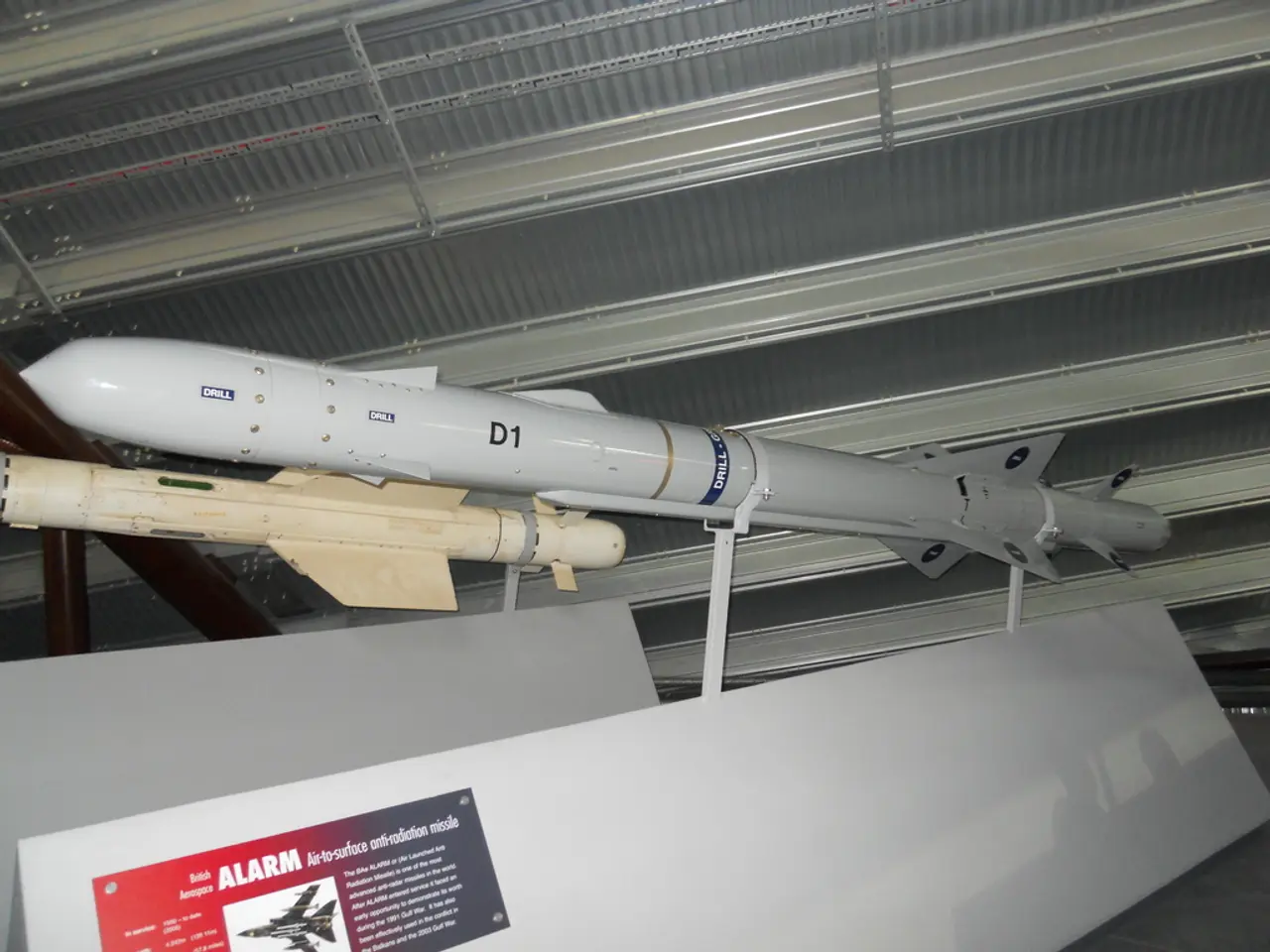Republican Party leaders question Trump's comprehension of the nuclear navy
In a bold move, President Trump has ordered the deployment of two nuclear submarines to "appropriate regions" as a response to provocative statements from Dmitry Medvedev, Russia’s Deputy Chairman of the Security Council, amid heightened tensions over the Ukraine conflict[1][2][3]. This strategic move is intended as a show of strength to deter Russian escalation and signal U.S. readiness for serious consequences if Russian provocations continue[1].
The deployment of nuclear submarines serves as a significant signal given their stealth, second-strike nuclear capabilities, and ability to operate near contested regions without immediate detection[1][2]. It emphasizes U.S. commitment to countering Russian threats and raising the stakes in the geopolitical standoff[1]. Trump’s decision came after he shortened a deadline for Russia to agree to a ceasefire in Ukraine from 50 days to 10, highlighting growing frustration over Russia’s aggressive actions and drone attacks on Ukraine[1].
Reactions within Trump’s own party have been mixed but generally supportive of a strong stance towards Russia, reflecting a hardline position on national security and Russia’s invasion of Ukraine[1]. Defense Secretary Pete Hegseth publicly supported the move by reposting Trump’s statement, signaling alignment within the Republican leadership on this show of force[1]. However, broader Republican views vary, with some expressing concerns about the nuclear submarine deployment plan[1].
Meanwhile, concerns among Trump's allies are being discussed within political circles, though the extent to which these concerns will impact the nuclear submarine deployment remains unclear[1][4]. The concerns are not limited to the submarine deployment alone, and they may potentially influence Trump's decision-making regarding this matter[1][4]. The global stir caused by Trump's announcement has been further fuelled by these concerns[1].
From the Russian side, the Kremlin called for restraint following the U.S. deployment of nuclear submarines, warning against actions that could exacerbate tensions and lead to unintended consequences[4]. Dmitry Medvedev’s original provocative remarks challenged Trump’s ultimatum on the ceasefire, warning that each new threat pushes the world closer to war—not just between Russia and Ukraine but involving the U.S. itself[1].
In summary, Trump’s deployment of nuclear submarines is a strategic move to bolster deterrence amid escalating Russian-Ukrainian conflict and signals a stronger U.S. posture, which has drawn both internal Republican support and Russian calls for caution[1][4]. The concerns of Trump's allies are adding to the global discussion, though the impact on the nuclear submarine deployment remains uncertain.
[1] CNN, "Trump deploys nuclear submarines in response to Russian provocations," 2022. [2] Associated Press, "U.S. deploys nuclear submarines to counter Russian threats," 2022. [3] Reuters, "Trump's nuclear submarine deployment: What you need to know," 2022. [4] BBC, "Russia warns against US nuclear submarine deployment," 2022.
- The deployment of nuclear submarines by President Trump, as part of his policy-and-legislation response to war-and-conflicts in Ukraine, serves as a significant tool in politics, signaling a general-news global shift in the pressure exerted on Russia.
- Conversations among Trump's allies have expressed concerns, adding to the political debate surrounding the nuclear submarine deployment, which falls under war-and-conflicts, and could potentially influence his policy-and-legislation decisions.








